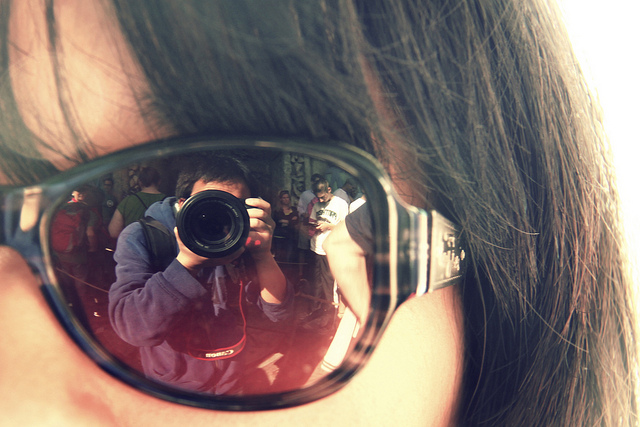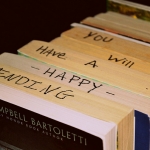 here’s a reason why we click certain articles and ignore the others. There’s a reason why we like and share a certain message and not the others. There’s a reason, and this reason is simple: It’s because we see bits and pieces of ourselves there.
here’s a reason why we click certain articles and ignore the others. There’s a reason why we like and share a certain message and not the others. There’s a reason, and this reason is simple: It’s because we see bits and pieces of ourselves there.

Photo by Yinghai
Like, I don’t know about you, but I’m always attracted to those humanitarian stories. The story of the nurse who shares the top five regrets of the dying. The story of a married man of fifty years who imparted his lessons in relationship. The story of random acts of kindness.
The other thing that attracts me? Puns. Just because during this time last year, I had an awesome trip with my four ‘Artsy Fartsy’ university friends around Victoria and we grew a liking towards this play of words. Or someone did, and the others got contaminated.
I’m also more prone to open articles regarding these topics: love, relationship, travel, writing, journalism, life as a fresh graduate, tips to become an awesome 20-something, and so on.
The stories that I never read? Politics, technology, properties, legal issues, business issues, the GDP growth of a country, tips to reduce weight in three weeks, and so forth.
Thing is, I read my own taste of stories. You do too. Occasionally we venture to the other realms because the headline is so powerful or because it affects us all or because it is the ‘in’ thing that we just have no excuse to not know. Like how Australian government taps into the phone of the Indonesian President SBY. Or the typhoon happening in the Philippines.
Why are we attracted to some stories and ignore the others?
Because we see bits and pieces of ourselves there.
Sometimes, we even like, post, and share on our Facebook and Twitter to give a subtle hint towards a certain person. If it’s an article about picking up the pieces after a man crushed our heart and ripped our soul, we post it with the hope that he would read it, and then weep for hours and hours for what he’s done to us.
If it’s an article about being a broke 20-something where it’s written, “It’s okay to make mistakes,” we post it for the sake of our soul, convincing ourselves that we, indeed, are eligible to be granted that sacred forgiveness.
We see ourselves in the debate of following your passion vs dealing with reality. We see ourselves in the post-graduation articles talking about those sleepless nights – thinking, worrying of what would happen to us ten years more to come. Can we finally afford a house? How will we finance ourselves and our families later on? Will we forge our own path of success?
We read stories about living the life worth writing about and we share it, despite not living one at the moment. Because you know what? We see our future selves in that article.
At other times, we hope to see ourselves in those posts. We know that we are not the youngest person to travel the world in five years’ time but we secretly hope that one day, we would have the courage to just hop on the train and get down to it.
We like, we post, we tweet, we share because we care. We care about the issue of the lost art of learning in the younger generations. We are passionate about learning how to live our lives well – how to live the good life. We comment on the movies, books, and songs that resonate with our souls.
The others? We let them pass by.
You want to get to know yourself? It’s not by doing yet another personality test in four different metrics altogether.
It’s by analysing your behaviour – what you tweet, what you share, what you like, what you comment, and what you read.
Because those innocent, impulsive acts of both random and aptly planned clicks offer more truthful pictures of who you really are.









